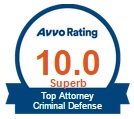Being charged with False Imprisonment can be a difficult and emotionally trying time as it often includes accusations of parents or guardians treating their children poorly. Such charges are felonious in nature and can carry serious consequences if convicted.
Not only do felony offenses carry more severe consequences than those of a misdemeanor or gross misdemeanor, but can affect you for the rest of your life. If convicted of a felony, you may lose your right to vote or your right to serve on a jury. Often times, you are also prohibited from pursuing certain professions, like teaching or practicing law. But beyond those professions, many employers simply will not hire someone with a felony conviction. Because criminal records are viewable by the public, this can affect finding any type of work at all, resulting in problems paying bills and commonly, foreclosure on your house.
That’s why it’s important to have a knowledgeable and dedicated attorney in your corner. At Ascheman Law, our attorneys will explain the case and your rights, and will work diligently on your behalf to ensure you receive the best possible outcome in your case.
What is False Imprisonment and what are the consequences?
If the State is charging you with False Imprisonment intentionally confined another person or another person’s child without his or her consent, and you knew you did not have the lawful authority to do so. If convicted, this offense carries a maximum sentence of three years imprisonment and/or a fine of no more than $5,000.
A False Imprisonment offense can also be when a parent, legal guardian or caretaker unreasonably and cruelly confines a child for a prolonged period of time. These types of confinement include, but are not limited to, tying, locking, caging or chaining. If convicted, such offenses carry a maximum sentence of no more than a year in prison and/or a fine of no more than $3,000.
However, the consequences are more severe if the child is substantially harmed during the confinement. If so, the offense carries a maximum sentence of five years imprisonment and/or a fine of no more than $10,000.
How is False Imprisonment different from Kidnapping?
It is easy to confuse False Imprisonment with Kidnapping. The two offenses are similar in that they both require an individual to hold another against his or her will and that they are both felonious offenses.
Kidnapping is when an individual confines or removes a victim from one place to another without his or her consent, or a person under the age of 16 without their parent’s consent for various reasons. These reasons can be to hold the victim for ransom, as a hostage or as a shield, or to harm or terrorize the victim or another.
The consequences of Kidnapping are much more severe than False Imprisonment, but like False Imprisonment are determined by the well-being of the victim at the time of release. Kidnapping carries a maximum sentence of 40 years imprisonment and/or a fine of no more than $50,000.
Why should you call us?
No matter what type of False Imprisonment you are charged with or the severity of the charge, it is important to consult with a criminal defense attorney to understand the charges, your rights, and to protect your future. There are many excellent reasons to contact Ascheman Law for a free consultation, here are a few:
- It’s free, you have nothing to lose but time;
- We can answer your questions;
It’s confidential, we are bound by a code of ethics not to talk about your case; - No strings. Yes, we would like to represent you, but you are in no way required to hire us;
- We want to help, it’s why we do what we do; and
- It may change your life.
What to Do:
If the State is accusing you of False Imprisonment, you need trained criminal attorneys to help fight these charges. Call us today at 612-217-0077 to set up a free consultation.
- Appeals
- Assault
- Boating While Intoxicated
- Burglary
- Child Abduction
- Child Abuse and Neglect
- Child Sexual Abuse
- Controlled Substances
- Controlled Substances
- Criminal Defense
- Criminal Forfeiture
- Criminal Sexual Conduct
- CVO & CVH
- Domestic Abuse
- Drivers License Suspension
- Driving While Intoxicated
- Embezzlement
- Expungement
- False Imprisonment
- Felony Charges
- Forgery
- Fraud
- Gross Misdemeanor
- Hit and Run
- Internet Crimes
- Juvenile Cases
- Kidnapping
- Minor Consumption
- Misdemeanors
- Murder Charges
- No Contact Orders
- Parole & Probation
- Shoplifting
- Stalking
- Theft
- Traffic Tickets
- Trial Practice
- Weapon Charges
- White Collar Crimes
Contact Us
Landon Ascheman
500 Laurel Avenue
St. Paul, Minnesota 55102
MAP IT
Phone: 612-217-0077
Fax: 651-344-0700
Landon@AschemanLaw.com



